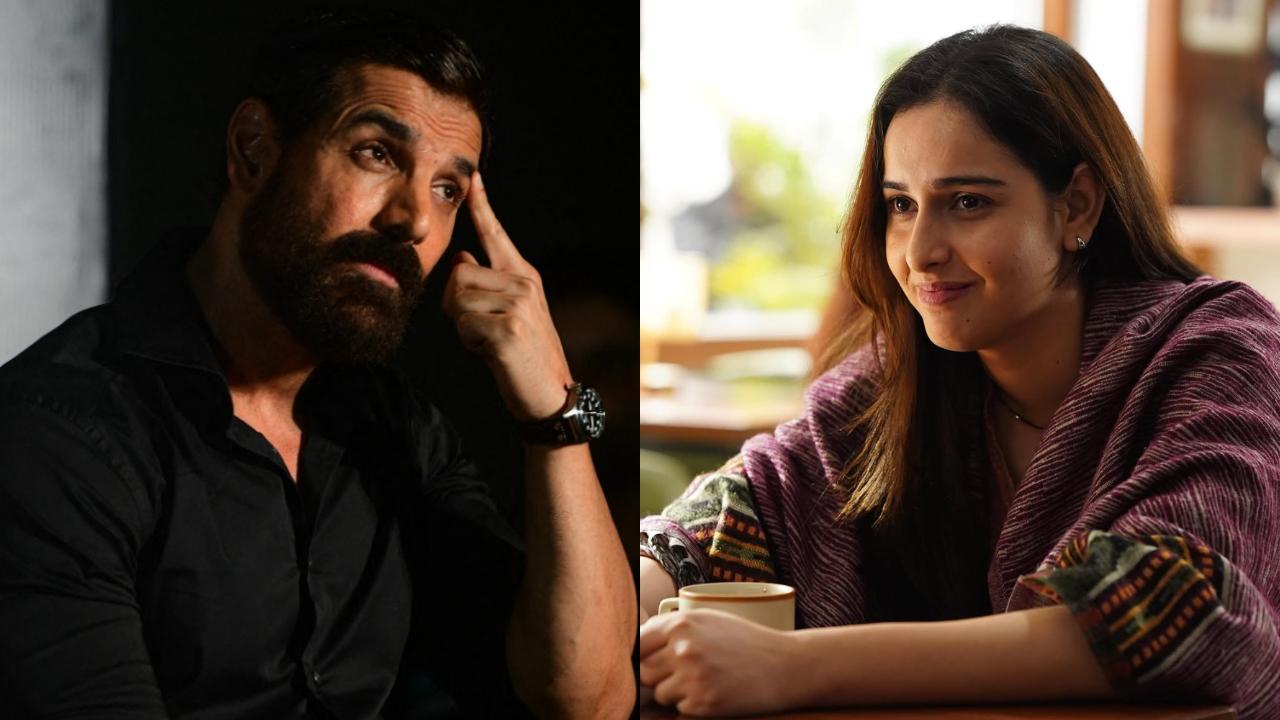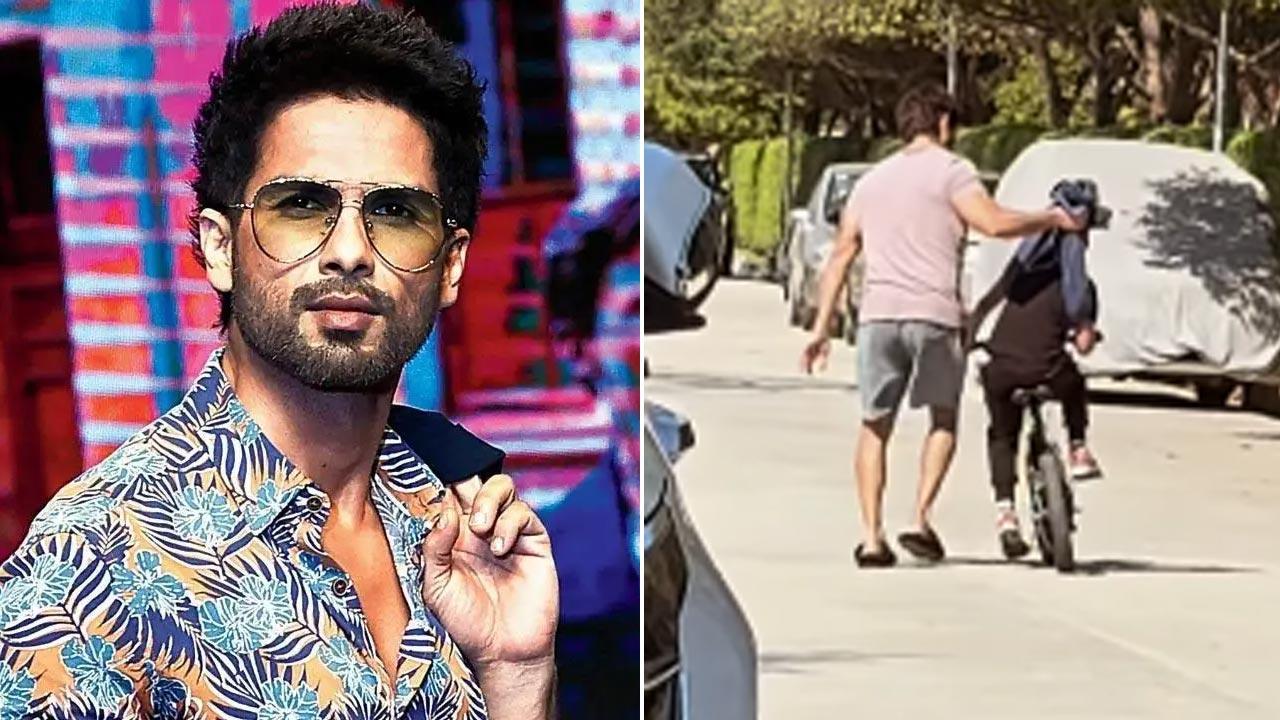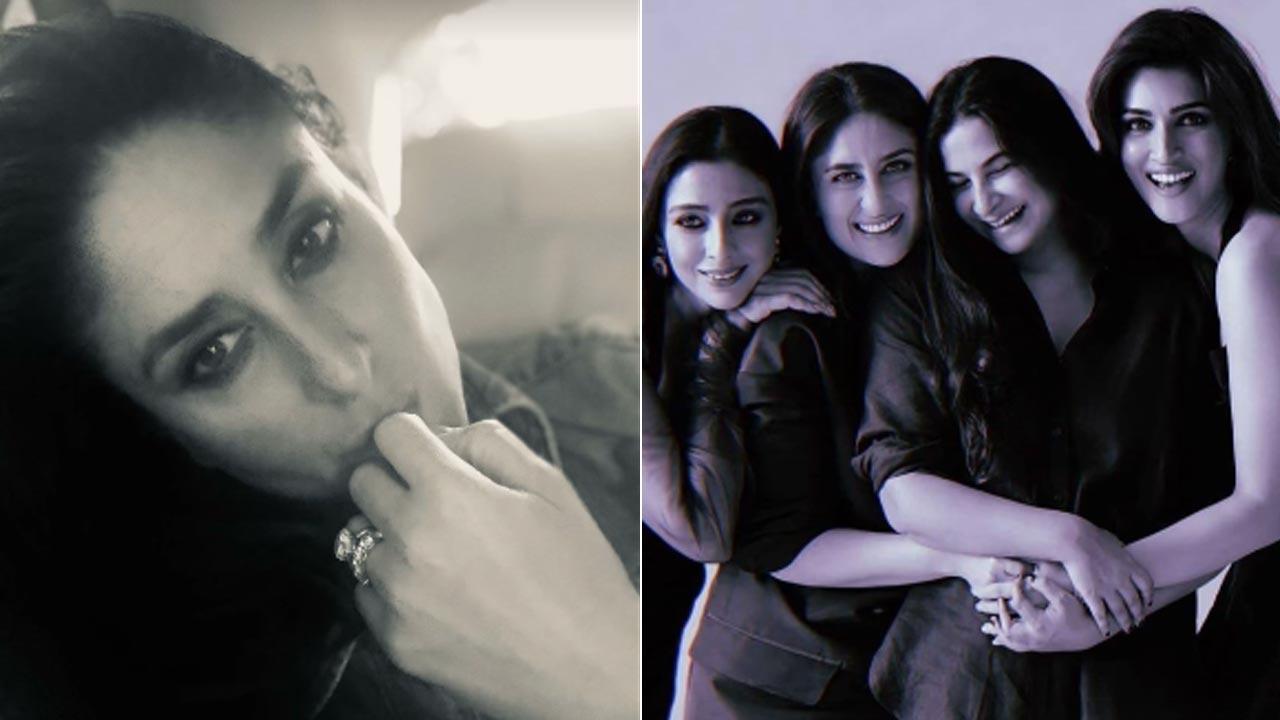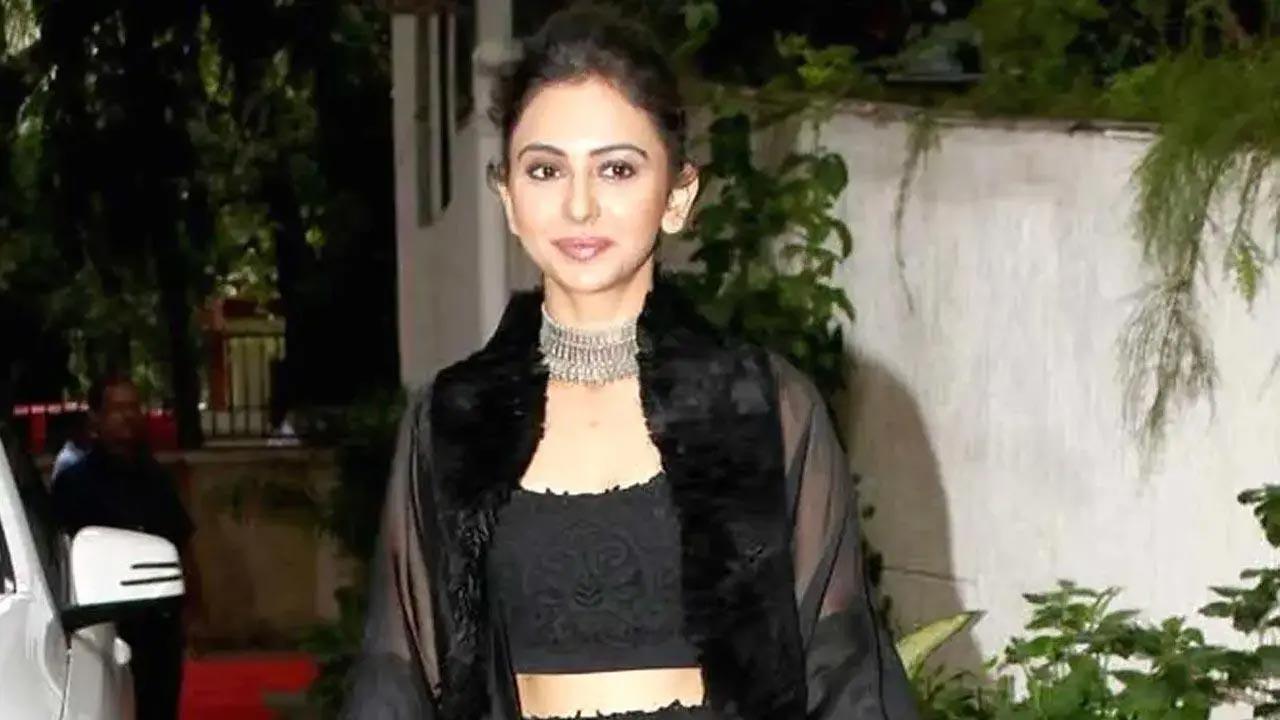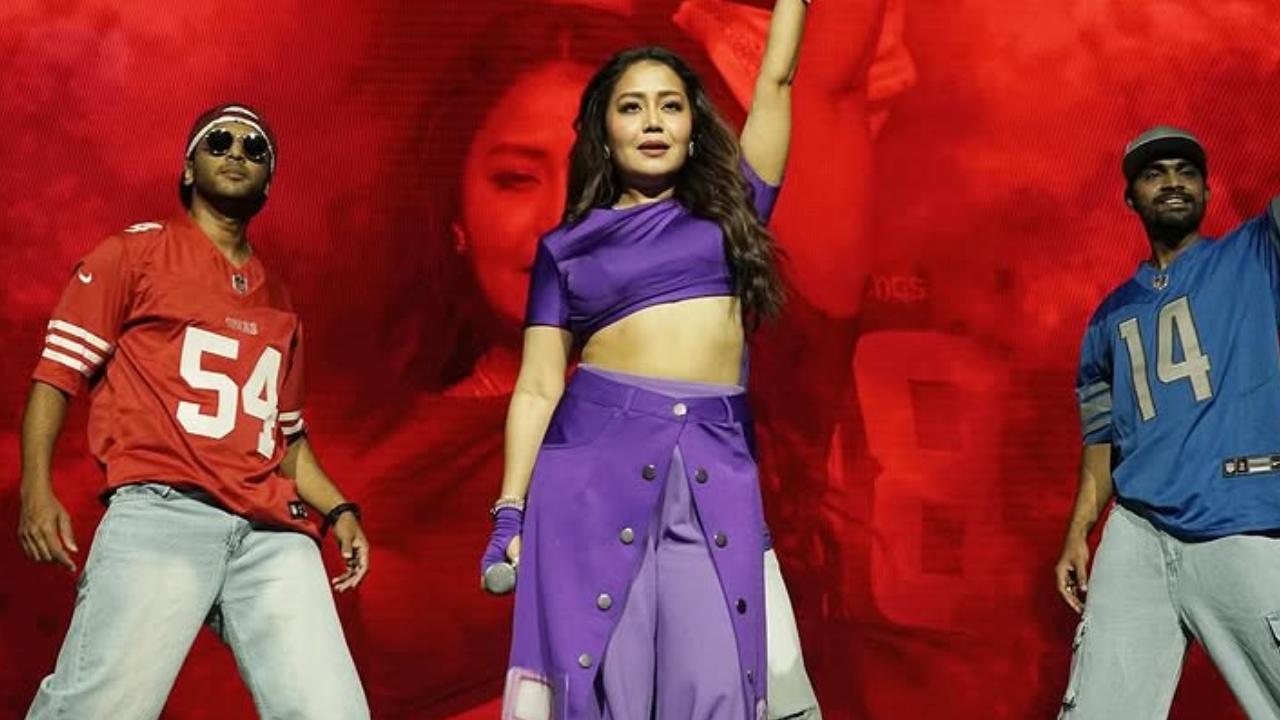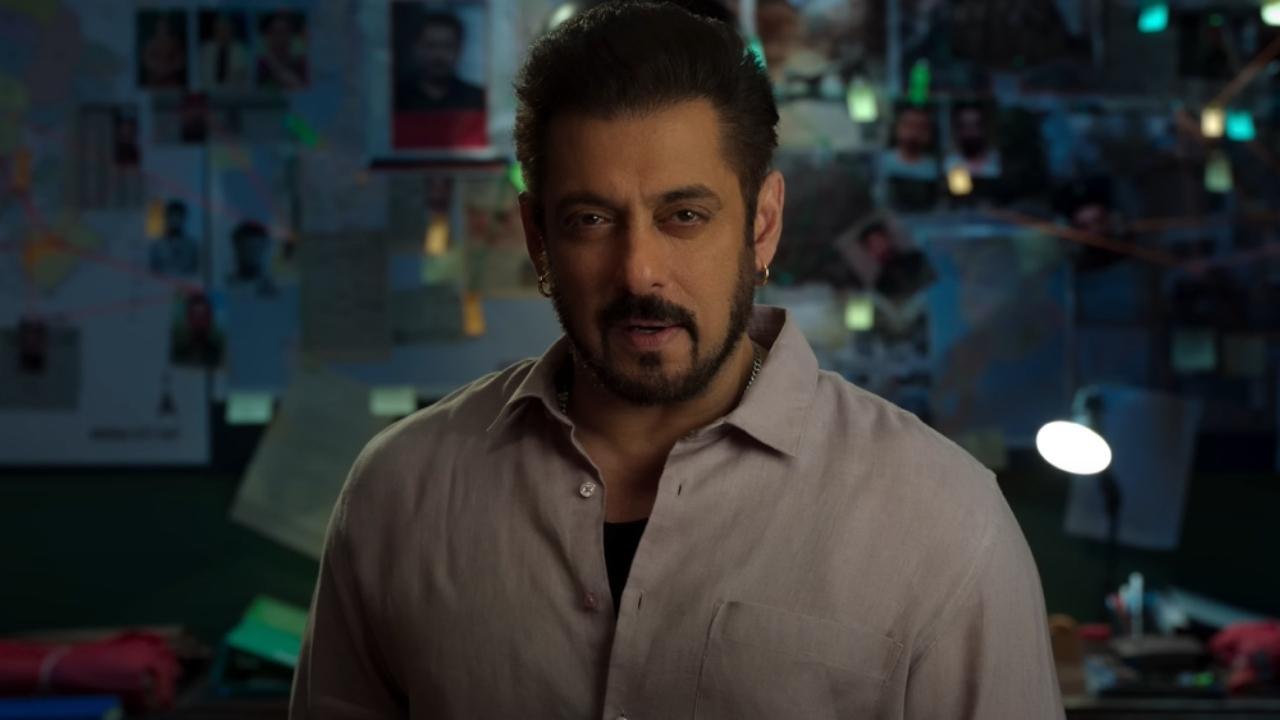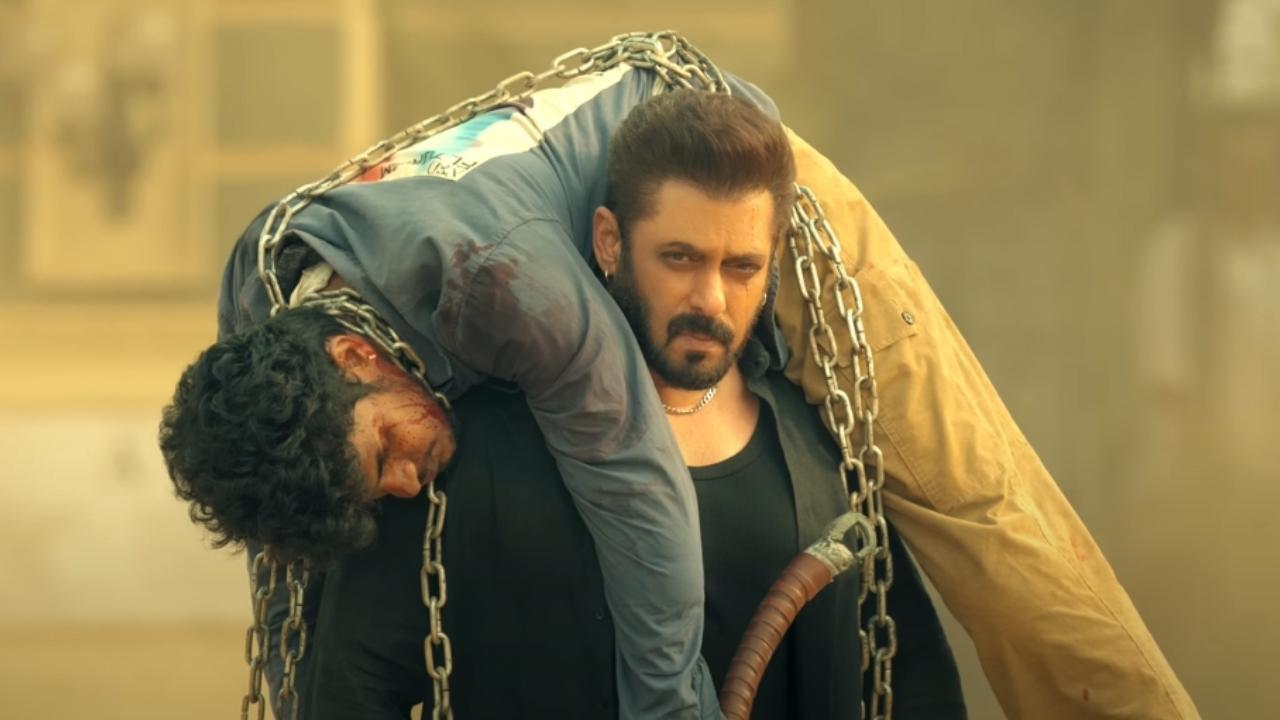Read Bollywood News
Sanjay Dutt & Salman Khan to reunite after 25 years for 'Chota Bhai'
Bollywood star Sanjay Dutt on Saturday left moviegoers excited as he confirmed reuniting with his "Chota Bhai" Salman Khan for a film. Though he did not disclose any details regarding the project, he expressed his excitement about working with Salman after 25 years. ""Saajan dekh li aapne, Chal Mere Bhai dekh li... abhi dono mein Tashan dekh lijiye. I'm very excited for the movie. I'm also happy ye soch ke ki main apne chote bhai ke sath kaam karonga 25 years ke baad," Sanjay told media during the trailer launch of his film 'Bhootnii'. Sanjay also sent best wishes to Salman for the success of his film 'Sikandar', which will be released on March 30. "Superhit trailer hai. Mera bhai hai chota aur uske liye main hamesha prarthna karta hoon. Bhagwan ne usko bohot diya hai, yeh bhi superhit picture hogi," he said. Recently, Salman himself teased the project at press meet for his film Sikandar in Mumbai. "The next project I'm working on, after Sikandar, is going to take action to a whole new level. It's going to be drastic." He further revealed that his "older brother" would be a part of the project. Salman and Sanjay worked together earlier in Saajan (1991) and Chal Mere Bhai (2000). They also co-hosted the fifth season of the reality TV show Bigg Boss. Now, fans are eagerly waiting for their next on-screen collaboration. This story has been sourced from a third party syndicated feed, agencies. Mid-day accepts no responsibility or liability for its dependability, trustworthiness, reliability and data of the text. Mid-day management/mid-day.com reserves the sole right to alter, delete or remove (without notice) the content in its absolute discretion for any reason whatsoever
30 March,2025 09:58 AM IST | Mumbai | ANISadia Khateeb reveals not talking to John Abraham during The Diplomat
Actor Sadia Khateeb, who stepped into the acting arena with Shikara and Raksha Bandhan, made waves with her performance in The Diplomat alongside John Abraham. Sadia essayed the role of Uzma Ahmed, a Muslim woman who married a Pakistani man only to be assaulted and tortured. She manages to reach the Indian Embassy, where she seeks help from JP Singh, a skilled diplomat. In an exclusive interaction with Mid-day, Sadia shares her experience doing the film, her rapport with John Abraham, and more. View this post on Instagram A post shared by Sadia khateeb 🦁 (@sadiaakhateeb) Sadia on working with John Abraham Those who have watched The Diplomat have seen the intense one-on-one conversations between Sadia and John. However, the actor reveals that they deliberately did not interact off-screen to build that tension for an organic outcome. She shares, “John Abraham made me feel very comfortable. The fact that my character was supposed to be intimidated by JP Singh, he made sure that we don't interact in the beginning as much as usually co-stars do. I would see him from behind, and he would give me a glance. We would not talk. I would always smile about it. But then I understand why.” Sadia on filming the assault scenes While the actor maintains that it was a difficult watch for her parents, she got choked for real while filming one of the scenes where she is assaulted by her onscreen husband. She recalls, “I remember I was coughing in between takes. I raised my hand and tried to hit him. Then the ADs understood that ‘She's not acting. She's actually choked.’ Then they stopped, and we had water and everything. So, these are the moments that I think the makers really tried to build organically. Nobody likes to get beaten, right? But then when you see the film, when you see the outcome, it was worth it.” Sadia on her contemporaries with PR machinery Sadia Khateeb, who does not hail from a film background, is unfazed by her disadvantage and believes that everyone has their own journey. She states, “Even if somebody has fully fledged PR, they have more pressure also from the legacy that they carry. I'm still learning to figure out honestly. I also want to be popular, but I cannot compete because my background is different. My approach towards work and integrity is different. I have my do's and don'ts. I come from a city which no other actor I know around comes from.” Sadia asserts that she doesn’t have a management or agency to guide her. “Everything that I'm doing right now is God's help. It will take longer for sure than other people who have power along with them. But at least I know this is wholly my own journey and my Allah's help,” she concludes.
30 March,2025 09:39 AM IST | Mumbai | Oshin Fernandes'Paisa vasool': Fans give their verdict on Salman Khan starrer Sikandar
Salman Khan's much-awaited action thriller, co-starring Rashmika Mandanna, Sikandar, has been released in theatres today. Within hours of the film hitting the theatres, X is already flooding with fans hailing the film. The first-day, first-show crowd has already given the verdict, and with the kind of response pouring in for the film, it looks like Salman Khan is all set to own this Eid with his blockbuster release yet again. X hail Salman Khan’s Sikandar A movie buff, while sharing his views on the Salman Khan starrer, took to X and wrote, "Watched #Sikandar with friends and sabko movie dekh ke 'kick' mila. Emotional angles toh hai hi but after years there’s a STRONG reason behind them in Bhai’s movie. Scope of improvement in cuts but OMG... BGM. Gonna watch it again with my family... Iowa, USA." Meanwhile, another user wrote, "#Sikandar first half is decent. Core plot point is interesting but action scenes should have been better instead of slo-mo shots. Muruga being from South, cast 3 ladies from South cinema lol – Rashmika, Kajal Aggarwal, and Dhanya Balakrishna. Lack of blockbuster songs is a minus." "#SikandarReview. Mass entertainer, OG climax, heartwarming story. #SalmanKhan's acting is on a mass level like never seen before. BGM song too massy like #Jawan. Paisa wasool movie, go watch first day, first show only," one user shared. Sikandar leaked online Salman Khan's Sikandar has leaked online just hours after the film hit theatres. After a long wait, Sikandar was released in theatres today on the auspicious occasion of Gudi Padwa, just ahead of Eid. Just hours after the movie hit theatres, a pirated copy of the film was leaked online. Several notorious platforms like Tamilrockers, Movierulz, Filmyzilla, and Telegram groups have leaked the full movie online, offering illegal downloads and streaming links. Despite strict anti-piracy laws being in place, illegal streaming platforms continue to be a huge problem for Bollywood. In Sikandar's case, it seems like the leak was caused by camcorder recordings in theatres, which are later uploaded in HD quality within hours. With the Salman Khan and Rashmika Mandanna starrer leaking online just within hours of its release, it could hamper the box office collection of the film.
30 March,2025 09:00 AM IST | Mumbai | mid-day online correspondentSalman Khan's Sikandar leaked online hours after theatrical release
Salman Khan's Sikandar has leaked online just hours after the film hit theatres. After a long wait, Sikandar was released in theatres today on the auspicious occasion of Gudi Padwa, just ahead of Eid. Just hours after the movie hit theatres, a pirated copy of the film was leaked online. Several notorious platforms like Tamilrockers, Movierulz, Filmyzilla, and Telegram groups have leaked the full movie online, offering illegal downloads and streaming links. Despite strict anti-piracy laws being in place, illegal streaming platforms continue to be a huge problem for Bollywood. In Sikandar's case, it seems like the leak was caused by camcorder recordings in theatres, which are later uploaded in HD quality within hours. With the Salman Khan and Rashmika Mandanna starrer leaking online just within hours of its release, it could hamper the box office collection of the film. Salman Khan on piracy sites Salman Khan who is totally against the leaking of any film online, once addressed the problem of pirated versions of films being released. After his film Radhe was leaked online, Salman strictly condemned this action and had put out a story. He wrote: “We offered you to watch our film Radhe at a reasonable price of INR 249 per view. In spite of that, pirated sites are streaming Radhe illegally, which is a serious crime. Cyber cell is taking action against all these pirated sites.” Salman urged everyone not to “participate in piracy” or risk action from the cyber cell. “Please understand you will get into a lot of trouble with the cyber cell,” wrote the Dabangg star on his Instagram story. What to expect from Sikandar Talking about what fans can expect from Sikandar, Salman assured that the film has much more to offer beyond what is seen in the trailer. He said, "This is just a 3.5-minute trailer. When you see a 2-hour 25-minute-long film, you will understand that this trailer was nothing. We cannot put everything in the trailer. There are a lot of things in the film that you are going to like... For an action film, emotions are very important..." The film is directed by AR Murugadoss, renowned for his Tamil and Hindi blockbusters like Ghajini and Thuppakki. Sajid Nadiadwala has produced the project, marking Salman Khan's reunion with him after their 2014 blockbuster, Kick. The film also stars Rashmika Mandanna, Prateik Patil, Kajal Aggarwal, and Sathyaraj. Sikandar is set to release on March 30, 2025.
30 March,2025 08:28 AM IST | Mumbai | mid-day online correspondentShahid Kapoor's 'towel hack' to teach son Zain cycling leaves chachu in splits
Giving a glimpse into his fatherly duties, Bollywood star Shahid Kapoor on Saturday shared a video of him teaching his son Zain how to ride a cycle with a towel's help. In the video, Shahid can be seen helping his son, who's wrapped in a towel around his chest, maintain balance on the cycle. Shahid's "towel hack" left netizens in splits. In his caption, the 'Jab We Met' star even asked netizens for easier ways to help his son learn to cycle. View this post on Instagram A post shared by Shahid Kapoor (@shahidkapoor) "Teaching your son how to cycle with a towel. Any better suggestions on how this can be easier," he wrote. As soon as Shahid dropped the video, netizens flooded the comment section with their reactions. Shahid's brother Ishaan Khatter wrote, "dial the chachu helpline." "Gali ke bachho ke sath chhor do 1 din me hi heavy driver ban jayega," a fan quipped. Shahid and Mira got married on July 7, 2015, in an intimate wedding in Delhi. Their daughter Misha was born in 2016 while they blessed with Zain in 2018. Meanwhile, on the work front, Shahid was last seen in 'Deva', which is currently streaming on Netflix. In the movie, Shahid portrays a rebellious police officer who delves into a high-profile case.As he digs deeper, he unravels a complex web of deceit and betrayal, plunging into a perilous journey of investigation while Pooja Hegde is the leading lady in the role of a journalist. Produced by Siddharth Roy Kapur, 'Deva' is an action-packed roller-coaster ride full of thrills and drama. It was released on January 31, 2025. In the coming months, Shahid will be seen headlining Vishal Bhardwaj's directorial. He has previously collaborated with the acclaimed director on Kaminey, Haider, and Rangoon. Their new collaboration is a love story, reportedly set against the backdrop of the Mumbai underworld in the 1990s. This story has been sourced from a third party syndicated feed, agencies. Mid-day accepts no responsibility or liability for its dependability, trustworthiness, reliability and data of the text. Mid-day management/mid-day.com reserves the sole right to alter, delete or remove (without notice) the content in its absolute discretion for any reason whatsoever
30 March,2025 07:32 AM IST | Mumbai | ANIKareena Kapoor celebrates one year of 'Crew' with throwback picture
Bollywood star Kareena Kapoor Khan's latest Instagram story is about her recalling the memories she created on the sets of 'Crew', especially grooving to the 'Naina' song from the film. She dropped a black and white selfie and added 'Naina' song to it. "1 year later and still my favourite song (red heart emoji) #1YearOfCrew," she captioned the post. In another story, she posted a picture with her 'Crew' co-stars Tabu and Kriti. "Missing my lovely #Crew (red heart emoji)," she wrote. Producer Rhea Kapoor also took to Instagram and shared a video of the lead cast including Kriti Sanon, Kareena and Tabu. She captioned it, "Happy one year to my history-making, record-shattering #CREW. #oneyearofcrew #crew." View this post on Instagram A post shared by Rhea Kapoor (@rheakapoor) The film made under Balaji Telefilms and Anil Kapoor Film & Communications Network banners was released on March 29 last year. 'Crew' is a story of three women and is touted as a laugh-riot, set against the backdrop of the struggling airline industry. However, their destinies lead to some unwarranted situations, and they get caught in a web of lies. Last year, Kareena was also seen in Rohit Shetty's directorial 'Singham Again'. Both her films worked exceptionally well at the box office. This story has been sourced from a third party syndicated feed, agencies. Mid-day accepts no responsibility or liability for its dependability, trustworthiness, reliability and data of the text. Mid-day management/mid-day.com reserves the sole right to alter, delete or remove (without notice) the content in its absolute discretion for any reason whatsoever
30 March,2025 07:27 AM IST | Mumbai | ANIRakul Preet Singh on overcoming injury: ‘Recovery taught me to slow down'
Bollywood actress Rakul Preet Singh opened up about the changes she made in her life after suffering a back spasm during an 80 kg deadlift. She said that her journey through recovery taught her the importance of relaxation and letting go of things that are beyond a person's control. The 'De De Pyaar De' actress made an appearance at the Magnum Lounge during the ongoing Lakme Fashion Week in partnership with FDCI on Saturday. Speaking with ANI, Rakul Preet opened up about her health after the injury. The actress admitted that she is not in her optimum condition yet but acknowledges improvement in her health every day. "The injury really did do a setback. I feel like it's been 4 months, and I'm still not at my optimal yet. I still need to be very careful with a lot of things, but every day is better. I think what it teaches you is sometimes to slow down because you think everything is happening according to you, and you set a time for things, and then something like this happens." The actress recalled that she decided to let go of her work commitments and other things to focus on her recovery. "I remember that within the first week, I surrendered. I was like, OK, it's going to take its own time, and I have to be OK with letting go of certain things, letting go of certain work commitments, and then I bounced back stronger and completed the shoot of my film. Every day was a task to sail through, but then I think it just reiterates the fact that life is very uncertain" said Rakul Preet. The 'De De Pyaar De' actress also said that her injury and its aftermath taught her to be thankful for small things, which we often ignore in our daily lives. "We've got to be thankful for every small thing we do like. I'm very, very thankful for it. Sometimes, we don't value it, right, like tying your shoelaces. I couldn't do that for three months or you know, just sitting on bed for coffee, but I had to sit on a chair. I couldn't sit on a bed. So just small things that you start becoming thankful for." While sharing details about her injury, the actress admitted that it was not her diet but the workout which went wrong. "I think in general it wasn't diet. It was a workout that went wrong, and I think everyone should listen to their body. My body was giving me a signal for 5 days in pain, but unfortunately I was shooting and I didn't think that cancelling shoot for backache, you know, you can't shoot for backache, so I just popped pills and I went to work, but I feel like a balance of everything is important and great. Nourish yourself well." In October last year, the actress Rakul Preet updated her fans regarding her injury through an Instagram story. "Hi, my lovely people. Well, here is a little health update. I did something very stupid. I did not listen to my body. I had a spasm, kept pushing it, and it turned into a major injury. I have been in bed for the last six days. I think it will take another week or say for me to fully recover. I really hope I recover faster than that because it is not easy for me to give in and rest," Rakul said. In the video, Rakul can be seen bedridden. She also thanked everyone for the wishes. "But, it is a lesson learnt that please listen to your body when it gives you signals. Don't try to push. I thought that my mind was stronger than my body. It doesn't always work like that. Thank you so much for all your wishes, especially the people who miss me. I will bounce back stronger," she concluded. On the work front, Rakul will be next seen in 'De De Pyaar De 2'. 'De De Pyaar De 2' is directed by Anshul Sharma, produced by T-Series' Bhushan Kumar and Krishan Kumar and Luv Films' Luv Ranjan & Ankur Garg. This story has been sourced from a third party syndicated feed, agencies. Mid-day accepts no responsibility or liability for its dependability, trustworthiness, reliability and data of the text. Mid-day management/mid-day.com reserves the sole right to alter, delete or remove (without notice) the content in its absolute discretion for any reason whatsoever
30 March,2025 07:25 AM IST | Mumbai | ANISamyuktha joins forces for women’s empowerment with ‘Keep the Fire Alive'
Public outrage after every rape case is restricted to protests and candle marches. But is there more we can do? Writer-director K Praful Chandra, inspired by the RG Kar Medical College incident in 2024, shows the way forward with his short film, Keep the Fire Alive. While the story was in place, the director was still searching for a face to support it. He turned to director Charantej Uppalapati, who is making the Kajol and Samyuktha-starrer Maharagini: Queen of Queens, for help. “I love supporting women that’s why I am making Maharagini on women empowerment. I showed Samyuktha the short and she came on board as she is well-versed in this space,” shares Uppalapati. Samyuktha runs the NGO Adi Shakti that advocates for women empowerment. Charantej Uppalapati Chandra explains that usually, after an incident, there is public outrage and, after a few days, everything goes back to normal until another incident shocks the world, like the Nirbhaya case. “When the RG Kar Medical [rape case] happened in Kolkata, I didn’t find any content which resonated with what I was feeling. I didn’t want to share something and forget about it. My short film, inspired by Mahatma Gandhi’s principles, focuses on changing our laws and building a conscious future where there’s no place for such atrocities.” He hopes to present the short as a public service announcement (PSA) in theatres. “After CBFC’s approval, we want to take the consent of the local and central governments to make it a part of the theatre curriculum,” he says of the short written by Safa A. A still from Keep the Fire Alive Charantej Uppalapati’s film Kajol as Maya in Maharagini Maharagini: Queen of Queens is a revenge drama centered on Maya, played by Kajol, a woman on a mission for vengeance. The film marks her reunion with Prabhu Deva after 28 years.
30 March,2025 07:09 AM IST | Mumbai | Upala KBR‘It was a mistake having Neha Kakkar’, say Melbourne concert organisers
Days after singer Neha Kakkar shared her side of the Melbourne concert row, the show’s organisers have now come forward, calling out the Kala Chashma hitmaker over false allegations and revealing losses incurred in crores. They also stated that it was a mistake having her on board for the same. Melbourne show organisers hit back at Neha Kakkar In a Facebook LIVE, the organisers said, "The allegations are completely false. We are in big debt after the show. She should be the one paying us. It was a mistake having her on board." They also shared a list of the costs they had to undertake for Neha and her team. The sum of it was over Rs 71 lakh. The post also mentioned the company being banned from all Olympic Park Avenue events after Neha's performance was delayed by 3 hours. They also accused her crew of smoking inside the hotel room at Crown Towers Sydney which is strictly prohibited. View this post on Instagram A post shared by Beats Production (@beatsproductionau) Neha Kakkar’s account of the event Neha Kakkar penned a lengthy note explaining her side of the story. She claimed that she faced a harrowing experience with the organisers as they "ran away with her money." She wrote, "Do you all know that I performed absolutely Free for my Melbourne audience? The organisers ran away with my money and others too. My band was not even given food, hotel and even water. My husband and his boys went and provided them with food. In spite of all this, we still went on stage and did the show without any rest or anything because my fans were waiting for hrs for me there." View this post on Instagram A post shared by Neha Kakkar (@nehakakkar) What happened at the Melbourne concert Viral videos show Neha Kakkar in tears as she apologized to the audience. The singer can also be seen assuring the fuming crowd that she would make up for the lost time. "You have been sweet and patient, waiting for so long. I hate it. I have never made anyone wait in my entire life," Neha said. Neha Kakkar, who has belted out hits such as 'Second Hand Jawaani', 'Sunny Sunny', 'Manali Trance', 'London Thumakda', 'Dilbar', 'O Saki Saki', started her journey in singing by participating in the second season of the singing reality show, 'Indian Idol'.
29 March,2025 10:53 PM IST | Mumbai | mid-day online correspondentSalman Khan’s die-hard fan buys Sikandar movie tickets worth Rs 1.7 lakh
With just days left for the release of Salman Khan’s action entertainer Sikandar, fans have commenced advanced bookings for the movie. While some might indulge in a watch party since the release coincides with Eid and Gudi Padwa, one die-hard fan has gone the extra mile and purchased tickets worth Rs 1.72 lakh. A video of the person in question has gone viral. The fan can be seen distributing the tickets. When asked if it was sponsored by Salman, he denied it and asserted that he’d done this before in other cities. Watch the video below. A salman fan bought tickets worth 1.7 lac to distribute. Wonder what goes through their mindbyu/Slurpmey inBollyBlindsNGossip Salman Khan doesn’t want controversy While promoting Sikandar, Salman Khan opened up about various aspects, including controversies and fan expectations. While speaking to ANI, Salman was asked if controversies have become a trend with every film release. Responding to this, the actor made it clear that he does not want any controversy surrounding 'Sikandar'. "Arey nahin chahiye bhai humko koi controversy. Bohot saare controversies se guzar chuke hain hum. Humko nahin chahiye koi controversy," the actor said. "And I don't think controversies make a film a hit. We've seen, in fact, that sometimes a film's release is delayed due to controversies, for example, from Friday to the next Tuesday," he added. What to expect from Sikandar Talking about what fans can expect from Sikandar, Salman assured that the film has much more to offer beyond what is seen in the trailer. He said, "This is just a 3.5-minute trailer. When you see a 2 hours 25 mins long film, you will understand that this trailer was nothing. We cannot put everything in the trailer. There are a lot of things in the film that you are going to like...For an action film, emotions are very important..." The film is directed by AR Murugadoss, renowned for his Tamil and Hindi blockbusters like Ghajini and Thuppakki. Sajid Nadiadwala has produced the project, marking Salman Khan's reunion with him after their 2014 blockbuster, Kick. The film also stars Rashmika Mandanna, Prateik Patil, Kajal Aggarwal, and Sathyaraj. Sikandar is set to release on March 30, 2025.
29 March,2025 05:33 PM IST | Mumbai | mid-day online correspondent5 reasons to watch Salman Khan’s Sikandar on Eid 2025
Salman Khan is set to set the big screen ablaze this Eid with Sikandar, hitting theaters on March 30. The film’s trailer and songs have already ignited massive excitement, promising a high-octane mix of action and drama. With full-on mass entertainment, Sikandar is poised to be a blockbuster and a true treat for Bhaijaan fans. As anticipation soars for its release, here are five compelling reasons why Salman’s upcoming Eid extravaganza is a must-watch on the big screen! Salman Khan’s electrifying entry: A mass moment guaranteed Salman Khan’s larger-than-life screen presence is pure magic, and what’s a Salman film without a grand, whistle-worthy entry? Bursting through thick white fumes, he makes sure his fans aren’t left disappointed. His fierce, action-packed avatar, combined with his signature swag, guarantees an adrenaline rush that will set theaters roaring with excitement! Explosive action and powerful dialogues When Salman Khan is on screen, every line and scene is pure whistle-worthy magic! His dialogues, from Kick to Wanted, remain iconic even today. For Sikandar, the makers ensured power-packed lines like “Bohot saare policewale jail gaye hain...” and “Mere gusse par mera full control hain...” Fans can already picture the deafening cheers when Bhaijaan delivers these on the grand 70mm screen! Original storyline and pure mass entertainment In an era of remakes, Sikandar stands out with its entirely original storyline. Directed by Ghajini filmmaker AR Murugadoss, every scene and frame is crafted with authenticity. “This is a completely original story,” the director confirmed. Adding to its uniqueness, Santosh Narayanan’s powerful background score elevates the film’s energy and depth. Seeing a big star in a fresh narrative will be an exciting experience for audiences. Salman Khan and Rashmika Mandanna’s chemistry Salman Khan and Rashmika Mandanna are set to share the screen for the first time, and their electrifying chemistry in the trailer and songs has already sparked massive excitement. Fans are eagerly awaiting this fresh pairing, with social media buzzing over their on-screen dynamic. Watching their characters unfold on the big screen promises to be a thrilling experience. Salman Khan vs. Sathyaraj: An awaited face-off A hero is only as strong as his villain, and Salman Khan knows this well. This time, he faces the formidable Sathyaraj, famed as Kattappa from Baahubali. Playing a scheming politician, Sathyaraj’s composed yet menacing presence promises intense confrontations. Their high-stakes battle will be a thrilling cinematic showdown! Get ready for an epic cinematic experience this Eid 2025! Salman Khan returns to the big screen, joined by the stunning Rashmika Mandanna in Sikandar. Backed by the visionary Sajid Nadiadwala and directed by the master storyteller AR Murugadoss, the film is set to release on March 30, 2025.
29 March,2025 03:52 PM IST | Mumbai | mid-day online correspondent




